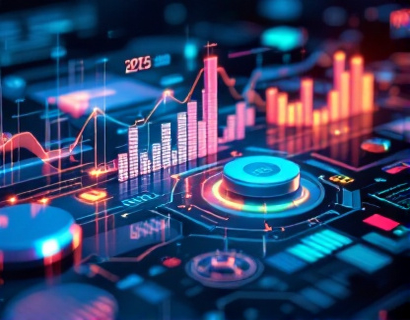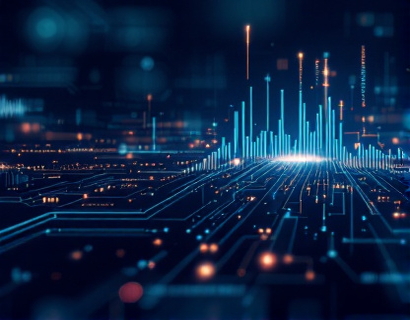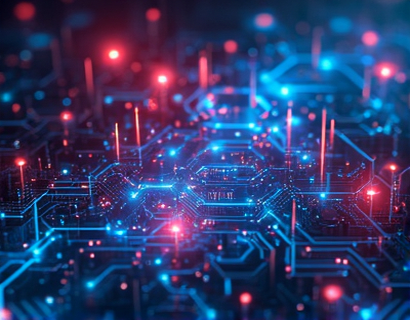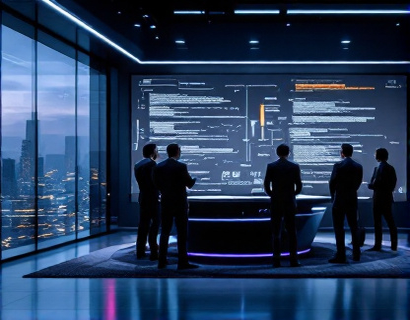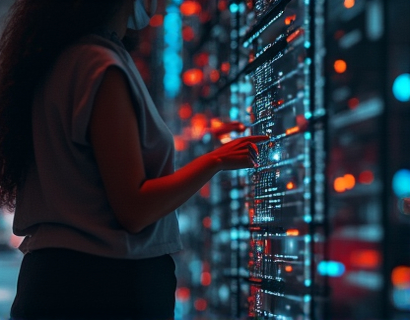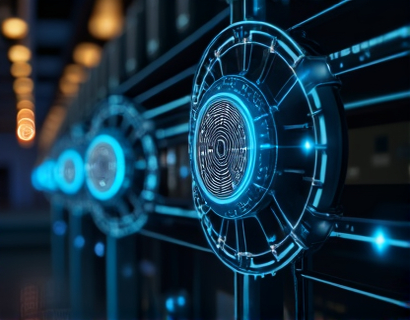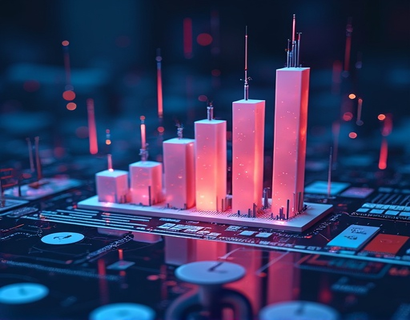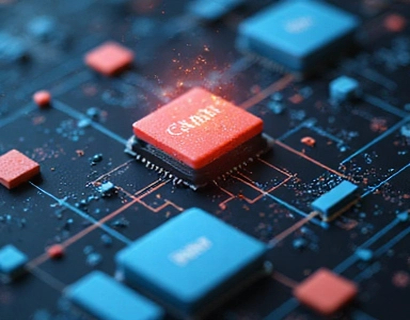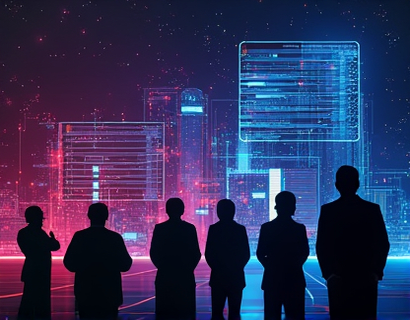AI-Powered Marketing Agents: Revolutionizing Business Growth Through Intelligent Automation
In the rapidly evolving landscape of digital marketing, businesses are constantly seeking innovative solutions to streamline their growth and maximize efficiency. One of the most transformative advancements in this domain is the emergence of AI-powered marketing agents. These intelligent tools leverage cutting-edge artificial intelligence to automate and optimize marketing strategies, significantly enhancing customer engagement and return on investment (ROI). By integrating AI-powered marketing agents, businesses can delegate routine tasks to intelligent automation, allowing them to focus on core activities that drive genuine value and growth.
The Role of AI in Modern Marketing
Artificial intelligence has become an indispensable asset in the marketing world. Unlike traditional marketing methods that rely heavily on human intuition and manual effort, AI-powered solutions offer data-driven insights and automated processes that can adapt in real-time to changing market conditions. These agents are designed to analyze vast amounts of data, identify patterns, and make informed decisions, all while continuously learning and improving their performance.
One of the primary benefits of AI in marketing is its ability to personalize customer experiences. By analyzing user behavior, preferences, and interactions, AI agents can create highly targeted and relevant content, offers, and communications. This level of personalization not only enhances customer engagement but also builds trust and loyalty, leading to higher conversion rates and increased customer lifetime value.
Streamlining Marketing Efforts with AI Agents
AI-powered marketing agents are designed to handle a wide range of tasks, from social media management and email marketing to content creation and analytics. By automating these processes, businesses can significantly reduce the time and resources required to maintain an effective marketing presence. Here’s a closer look at how these agents streamline various marketing functions:
- Social Media Management: AI agents can schedule posts, monitor engagement, and adjust strategies based on performance metrics. They can identify the best times to post, the most engaging content types, and even interact with followers to build a community.
- Email Marketing: These agents can create personalized email campaigns, segment audiences, and optimize send times for maximum open and click-through rates. They can also analyze open rates, click-through rates, and conversion data to refine future campaigns.
- Content Creation: AI tools can generate high-quality content, from blog posts and social media updates to product descriptions and newsletters. By leveraging natural language processing and machine learning, these agents can produce content that resonates with the target audience and aligns with brand voice.
- Analytics and Reporting: AI agents can provide real-time insights and comprehensive reports on marketing performance. They can track key metrics, identify trends, and offer actionable recommendations to optimize campaigns and improve ROI.
By automating these tasks, AI-powered marketing agents not only save time but also reduce the risk of human error. This allows marketers to focus on strategic decision-making and creative initiatives, rather than getting bogged down in routine operations.
Enhancing Customer Engagement Through AI
Customer engagement is a critical component of any successful marketing strategy. AI-powered agents excel in this area by providing personalized and contextually relevant interactions. Here are some ways AI enhances customer engagement:
Firstly, chatbots powered by AI can offer instant customer support 24/7. These chatbots can handle a wide range of queries, from answering frequently asked questions to guiding users through the purchasing process. By providing quick and accurate responses, chatbots improve customer satisfaction and reduce support costs.
Secondly, AI agents can analyze customer data to create detailed profiles, allowing for highly targeted marketing efforts. By understanding customer preferences, behaviors, and pain points, businesses can tailor their messaging and offers to meet specific needs, fostering stronger relationships and higher engagement rates.
Additionally, AI can facilitate predictive analytics, enabling businesses to anticipate customer needs and proactively address them. For example, by analyzing purchase history and browsing behavior, AI agents can recommend products or services that a customer is likely to be interested in, increasing the chances of conversion.
Maximizing ROI with Intelligent Automation
One of the most significant advantages of AI-powered marketing agents is their ability to maximize ROI. By automating and optimizing marketing processes, businesses can achieve better results with fewer resources. Here’s how:
First, AI agents can identify the most effective marketing channels and tactics based on data-driven insights. This ensures that budget is allocated to the initiatives that deliver the highest returns, reducing waste and increasing efficiency.
Second, AI-powered tools can continuously test and optimize campaigns in real-time. By conducting A/B testing and analyzing performance metrics, these agents can make adjustments on the fly to maximize engagement and conversions. This level of agility and responsiveness is crucial in a fast-paced digital landscape.
Third, AI agents can provide detailed ROI reports and insights, helping businesses make informed decisions about future marketing investments. By understanding which strategies and channels perform best, companies can refine their marketing strategies to achieve better outcomes and higher returns.
Empowering Businesses to Focus on Core Activities
The true power of AI-powered marketing agents lies in their ability to free up time and resources, allowing businesses to concentrate on their core competencies. By automating routine tasks and providing valuable insights, these agents enable marketers and business leaders to focus on strategic planning, innovation, and growth initiatives.
For instance, a business owner can use the time saved from managing social media and email campaigns to develop new products, expand into new markets, or enhance customer service. This shift in focus not only drives business growth but also fosters a more agile and responsive organization.
Moreover, AI agents can integrate seamlessly with existing marketing tools and platforms, ensuring a smooth transition and minimal disruption. This compatibility allows businesses of all sizes to leverage advanced AI technologies without the need for extensive technical expertise or significant upfront investments.
Case Studies and Real-World Applications
To better understand the impact of AI-powered marketing agents, let’s explore a few real-world examples:
- E-commerce Platform: An e-commerce company implemented an AI-powered chatbot to handle customer inquiries and support. The chatbot reduced response times by 70% and increased customer satisfaction scores by 40%. Additionally, the agent’s ability to recommend products based on browsing history led to a 25% increase in sales.
- Subscription Service: A subscription-based service used AI to analyze user behavior and preferences, resulting in highly personalized content and offers. This led to a 50% increase in customer retention and a 30% increase in monthly revenue.
- B2B Software Company: A B2B software firm utilized AI for lead scoring and nurturing. The AI agent identified high-quality leads and provided tailored content and communications, resulting in a 60% increase in conversion rates and a significant reduction in sales cycle length.
These case studies demonstrate the tangible benefits of integrating AI-powered marketing agents into business operations. From improved customer engagement to higher ROI, the applications are diverse and impactful.
Challenges and Considerations
While the benefits of AI-powered marketing agents are clear, there are several challenges and considerations businesses should be aware of:
First, data quality and availability are crucial for the effectiveness of AI agents. Poor or incomplete data can lead to inaccurate insights and suboptimal decisions. Therefore, businesses must invest in robust data management and governance practices to ensure high-quality data inputs.
Second, there is a need for skilled professionals who can implement and manage AI solutions. While AI reduces the need for manual tasks, it still requires expertise in AI technology, data analysis, and marketing strategy. Companies should consider upskilling their teams or partnering with AI specialists to bridge this gap.
Third, ethical considerations and transparency are essential. AI agents should be designed to respect user privacy and comply with data protection regulations. Businesses must be transparent about the use of AI in their marketing efforts to maintain trust with customers.
The Future of AI in Marketing
As AI technology continues to advance, the potential for AI-powered marketing agents to transform the industry is immense. Future developments may include more sophisticated natural language processing, enhanced predictive analytics, and greater integration with other emerging technologies like augmented reality and the Internet of Things (IoT).
Businesses that embrace these advancements early on will be better positioned to stay ahead of the competition. By leveraging AI to streamline operations, enhance customer experiences, and drive growth, companies can achieve sustainable success in the digital age.
In conclusion, AI-powered marketing agents offer a powerful solution for businesses looking to optimize their marketing efforts and maximize growth. By automating routine tasks, providing data-driven insights, and enhancing customer engagement, these intelligent tools enable businesses to focus on what they do best—driving innovation and value.






